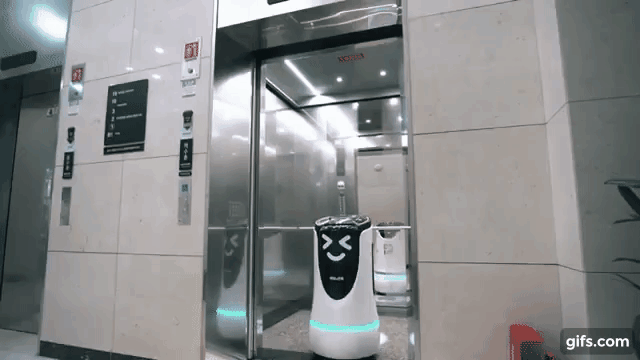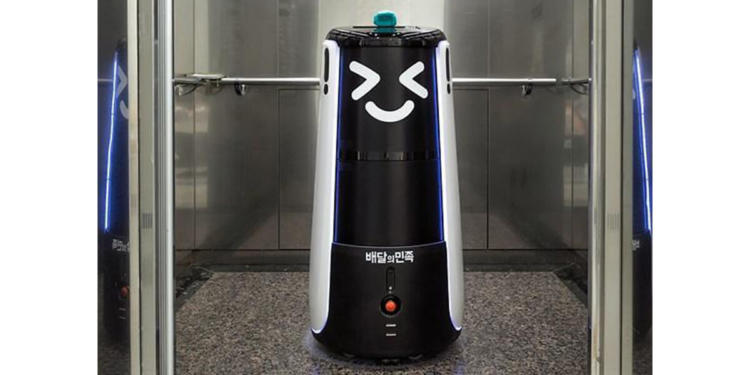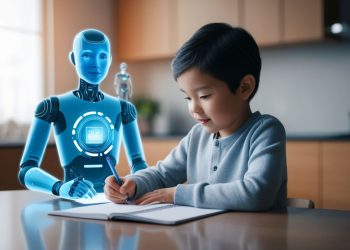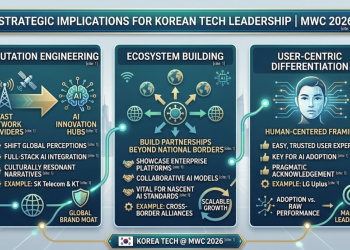Woowa Brothers on Wednesday signed a deal with Hanwha Engineering and Construction to launch an autonomous delivery service robot, named “Dilly Tower,” adept of traveling between floors at Hanwha E&C’s new apartment complex. The collaboration marks the beginning of a new culture in South Korea’s residential settings from the introduction of these autonomous robots in February 2021.
Woowa Brothers is the operator of South Korea’s top food delivery service app Baedal Minjok.
Last May 29, Woowa Brothers successfully conducted a test operation of the Dilly Tower at its headquarters in Seoul. Woowa happily reported that the Dilly Tower transported 255 drinks without errors in its pilot service, which lasted from May 11-15.
Woowa Brothers promoted the commercialization of delivery service robots as non-contact orders and services increased due to the coronavirus epidemic. The commercialization would start in the second half of the year after completing trial services at hotels and other places.
Dilly Tower could communicate with an elevator on its own and use a programmed direction to bring drinks or snacks from an in-house cafe on the 18th floor of the building. A screen at the top of the robot displays orders and linked to the cafe’s order reception system. Hanwha would create automatic doors and remove door sills so that the robot could move freely, employing a one-pass key.
Commercializing Service Robots
Woowa previously developed robots for restaurants and self-driven food delivery vehicles with the ultimate goal of producing robots that can move freely through the crowded streets. The enhancement of delivery robots has been sluggish because they are not so useful in a country where people mostly live in high-rise apartment buildings. Elevators became the most significant challenge for the service robot.
Dilly Tower, connected to automatic doors and elevators, moves freely on its own. The robot automatically sends text messages and calls the customer. The customer receives the food by entering their mobile phone numbers on the robot’s screen.

The service robot features two loading compartments and can move 1.2 meters per second. It can automatically slow down in narrow passages or on uneven roads and overcome up to 2.2 centimeters of a raised spot. The robot’s battery can last up to six hours and automatically charges when waiting.
The company initiated a serving robot rental service for restaurants using Dilly robots that autonomously bring food to tables and return empty dishes. Dilly could also move around obstacles.
Last April, Woowa Brothers partnered with Hyundai Elevator, the elevator and escalator maker subsidiary of Hyundai Motor Group, to conduct test operations at a lodging facility and a business facility. The collaboration aims to commercialize the system linking elevators and robots.







